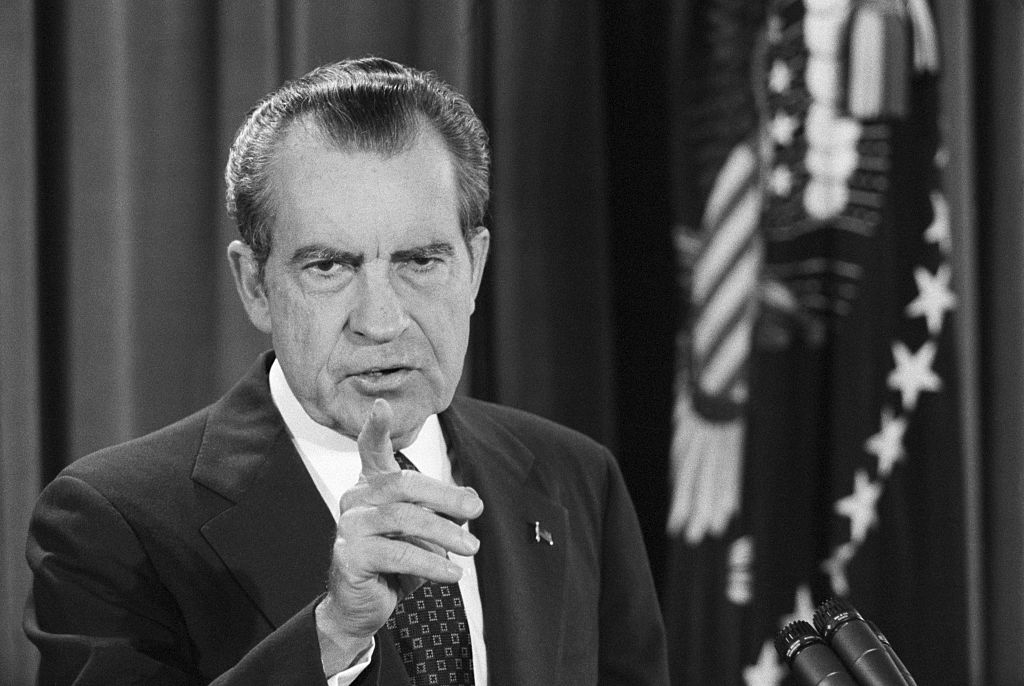
Get the latest financial news, insights and expert analysis from our award-winning MoneyWeek team, to help you understand what really matters when it comes to your finances.
You are now subscribed
Your newsletter sign-up was successful
Want to add more newsletters?

Twice daily
MoneyWeek
Get the latest financial news, insights and expert analysis from our award-winning MoneyWeek team, to help you understand what really matters when it comes to your finances.

Four times a week
Look After My Bills
Sign up to our free money-saving newsletter, filled with the latest news and expert advice to help you find the best tips and deals for managing your bills. Start saving today!
The 1960s were a time of mind expansion, free love and tiresomely earnest discussions about the nature of the universe, all fuelled by drugs.
But The Man wasn't having it. Less than two years after the Sixties finally shut up and went to bed, Richard Nixon declared on this day in 1971 that he was going to wage a war on drugs.
It wasn't so much the hippies that got up Tricky Dicky's nose, it was more the fact that GIs in Vietnam were getting hooked on extremely powerful narcotics, which wasn't doing much for the war effort.
MoneyWeek
Subscribe to MoneyWeek today and get your first six magazine issues absolutely FREE

Sign up to Money Morning
Don't miss the latest investment and personal finances news, market analysis, plus money-saving tips with our free twice-daily newsletter
Don't miss the latest investment and personal finances news, market analysis, plus money-saving tips with our free twice-daily newsletter
The sensible solution might have been to pull out of Vietnam and give some serious counselling to the traumatised young fighters. But when it comes to drugs, sensible rarely enters into the conversation.
Drugs were named public enemy number one', and the USA led the world in throwing money and legislation at the problem, seemingly having learned nothing from its disastrous experiment with prohibiting alcohol.
As with most wars, it wasn't going to be cheap either in monetary terms, or the number of lives lost or ruined. And with the global drugs trade worth £435 billion a year, it was facing a formidable foe.
Since Nixon's speech, the USA has spent over $1 trillion in fighting drugs. A quarter of the people in jail in the US, some half a million people are there because of drug offences, and $41 billion a year is spent on enforcing America's drug laws, according to CNN.
But if currently illegal drugs were to be taxed on the same basis as tobacco and alcohol, it's estimated that the country could raise nearly $50 billion a year. Indeed, Colorado, which legalised the sale of cannabis for recreational use in January 2014, raked in over $91 million in taxes and fees in the year to the end of April 2015. And in the year to April 2016, that figure has risen to over $142 million.
Get the latest financial news, insights and expert analysis from our award-winning MoneyWeek team, to help you understand what really matters when it comes to your finances.

-
 Should you buy an active ETF?
Should you buy an active ETF?ETFs are often mischaracterised as passive products, but they can be a convenient way to add active management to your portfolio
-
 Power up your pension before 5 April – easy ways to save before the tax year end
Power up your pension before 5 April – easy ways to save before the tax year endWith the end of the tax year looming, pension savers currently have a window to review and maximise what’s going into their retirement funds – we look at how
